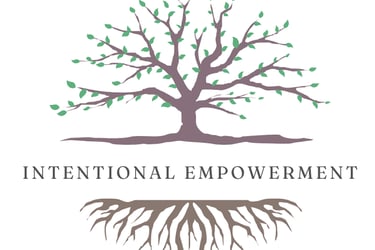Change is inevitable, coaching is a way to direct that change, and commit to where you want to go and how you want to get there
Objective Driven Coaching Evaluation Model
It is important to determine a valid way to measure coaching effectiveness because when coaching is poorly defined, assessed, and monitored, the consequences can result in a lack of goal attainment. The Objective Driven Coaching Evaluation Model is a framework used to assess the effectiveness of coaching engagements by aligning the evaluation process with the specific goals (objectives) set at the beginning of the coaching relationship. It ensures that both coach and client stay focused on measurable progress and outcomes that matter to the client or employee.
Core Components of the Objective Driven Coaching Evaluation Model:
Goal Setting (Objective Definition):
Clearly defined, measurable coaching objectives are established at the start.
These may be personal (e.g., increase confidence), professional (e.g., improve leadership presence), or organizational (e.g., reduce turnover in a team).
Baseline Assessment:
Initial assessments (360 feedback, self-assessment, behavioral metrics, etc.) are conducted to create a starting point.
This provides a benchmark against which progress can be measured.
Ongoing Monitoring:
Regular check-ins assess progress toward the stated objectives.
This could include session recaps, reflections, progress scoring, or mini-assessments.
Midpoint Evaluation (Optional):
A structured review partway through the coaching engagement helps determine if objectives are still relevant or need to be adjusted.
Final Evaluation:
At the conclusion of coaching, the progress toward objectives is assessed.
Tools may include post-coaching surveys, 360 reviews, self-assessments, and direct stakeholder feedback.
ROI/ROE Considerations:
In organizational settings, Return on Investment (ROI) or Return on Expectations (ROE) may be calculated, particularly if coaching was linked to key performance metrics.
Sustainability Plan:
An action plan is often created to help maintain gains beyond the coaching relationship.
Benefits of the Objective Driven Coaching Evaluation Model:
Aligns coaching with tangible outcomes.
Builds credibility for coaching in professional settings.
Supports accountability for both coach and client.
Enhances client motivation and focus.
The coaching purpose, participants, goals, and environment all play a role in goal achievement. The main takeaway from current research on coaching effectiveness is that the relationship and rapport established between coaching partners is key to goal attainment. Time should be invested in establishing a foundation for coaching between participants before the actual coaching for performance begins.
At Intentional Empowerment, LLC, we believe that coaching should be grounded in evidence, not trends. Our commitment is to provide up-to-date, research-based guidance that reflects the latest findings in organizational psychology, leadership development, and coaching effectiveness. We continuously review emerging studies to ensure our strategies create a meaningful, measurable impact.


Coaching Services We Offer
Career Coaching
Navigate job transitions, discover your strengths, and align your work with your values.
Executive Coaching
Sharpen decision-making, communication, and strategic vision at the highest levels of leadership.
Leadership Coaching
Empower emerging and established leaders to inspire teams, resolve conflict, and lead with emotional intelligence.
Business Coaching
Build and scale your business with clarity, accountability, and data-backed strategies.
Life Coaching
Break through personal barriers, set meaningful goals, and create a balanced, fulfilling life.
Burnout & Wellbeing Coaching
Designed for professionals, parents, and leaders running on fumes. We help you unlearn the hustle mindset and reconnect with peace, pacing, and presence.
Bluvshtein, M. (2019). The fundamental views and the need in fundamental courage. Journal of Individual Psychology, 75(3), 188-194.
Cavanagh, M., Grant, A.M. Kemp, T. (Eds). (2005). Evidence-Based Coaching: Volume 1, Theory, Research and Practice from the Behavioural sciences. Australian academic Press
Gan, G. C., Chong, C.W. (2015). Coaching relationship in executive coaching: a Malaysian study. The Journal of Management Development, 34 (4), 476-493.
Joo, B. Sushko, J. S., & McLean, G. N. (2012). Multiple faces of coaching: Manager-as-coach, executive coaching, and formal mentoring. Organization Development Journal, 30(1), 19-38.
Reddy, L. A., Glover, T., Kurz, A., & Elliott, S. N. (2019). Assessing the Effectiveness and Interactions of Instructional Coaches: Initial Psychometric Evidence for the “Instructional Coaching Assessments--Teacher Forms.” Assessment for Effective Intervention, 44(2), 104–119.
Additional Reading on the Importance of Evaluation in Coaching Effectiveness
Intentional Empowerment, LLC
Empowering people-first, Research based, business strategy & employee well-being
© 2025 Intentional Empowerment. All rights reserved.
Follow us on social
Have a question? We're here to help.
📧 jessicasumerak@gmail.com
📍 Twinsburg, OH (Serving clients nationwide)
